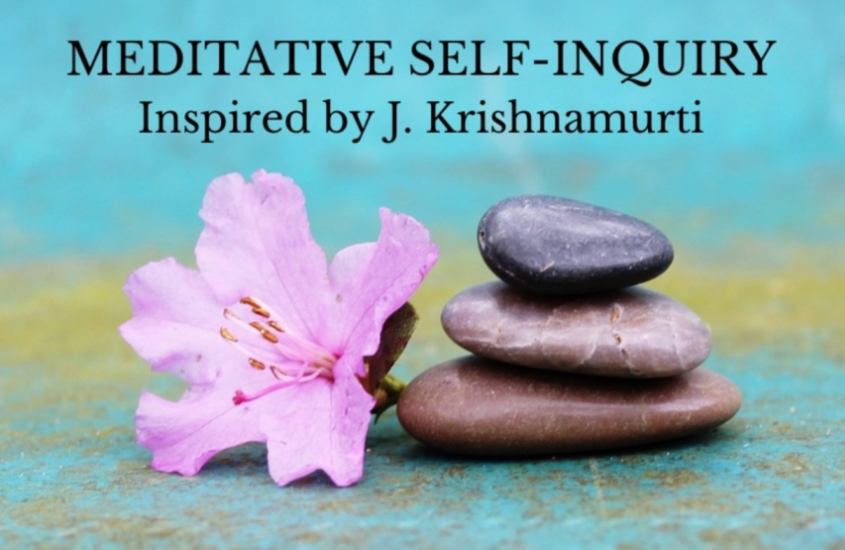Meditative Self-inquiry, May 8, 2022
Meditative Self-inquiry
With Mukesh Gupta
Sunday, May 8, 2022
Zoom Online
This session of Meditative Self-inquiry focused on the question “What is Compassion?” Sixteen people were in attendance in total and Mukesh was with us online from Europe. He began the meeting with a short silent meditation then posed the questions “What is compassion?” and “What is love?” with a comment that the two are very much interdependent. In both cases we must first see what is not compassion and what is not love and similarly with any quality of consciousness we are exploring, such as truth. Through negation we see and release what is not the truth. With the subject of compassion we see through our inquiry that any activity of the “me” or “ego” is not compassion and that compassion cannot be a part of the thought process, our stories, images, prejudices, and any aspects of the (egoic) self. There must be a space or freedom from the self and a seeing of the danger of the self-centred way of living.
“Why is there not this space or freedom?” Mukesh asked. “Is it because our minds are so busy, preoccupied?” There must be a quietness which listens to and feels the suffering of another. Separation must be seen to be just a story, an image. The truth of our Being is beyond images and thought. Identification with thought and images creates suffering and diminishes the beauty of life. Mukesh finished his half hour talk by saying that compassion is “passion for all” and not just caring for the few.
Mukesh invited the group to enter into a discussion or dialogue in which we could explore the nature of compassion from our hearts and not merely from the intellect. The first question that arose from the participants was a wondering how human beings can change their behaviour in relation to materialism and accumulation. What is the source of ambition and acquisitiveness? Is it fear? It was suggested that the mind is projecting the fear of dying without seeing the fact. This fear is the basis of greed and possessiveness. Can there be an attention which looks at the creation of fear and transforms it into creativity?
A second question from the attendees was concerning how we deal with expectation. The ending of suffering can become a goal and thus an expectation which does not bring freedom. Can we be aware of the activities of the “old mind” which is self-critical and observe from stillness, being open to the truth of the matter coming to us from the Unknown? This discussion brought forth the observation that we have never been taught who we actually are and without self-knowledge there can be no freedom or love. Competition between human beings creates conflict. When we imagine ourselves to be objects or “things” then there can be no love.
The inquiry deepened as the meeting unfolded and became more deeply involved in the challenge of being awake to our mechanical nature, staying with the self-inquiry, and negating that which is false. Can we move beyond our limiting desires for pleasure? It was noted that it is an ongoing work.



